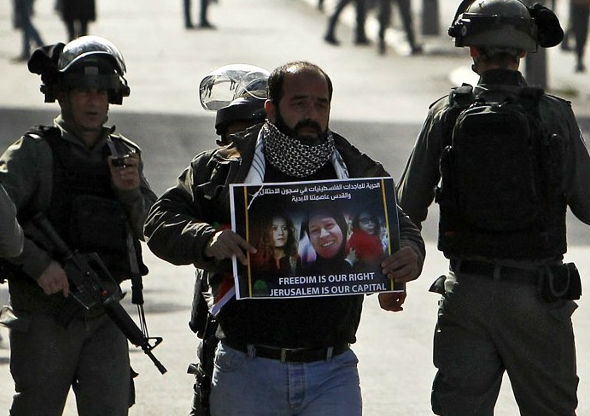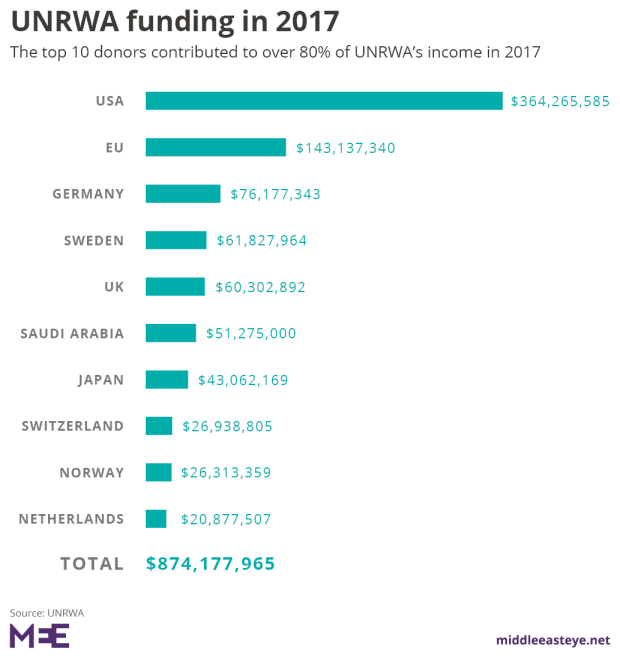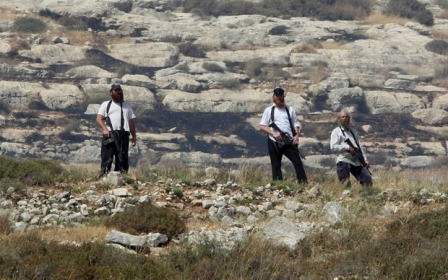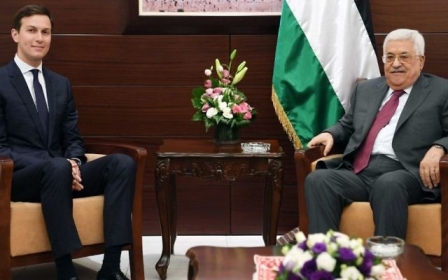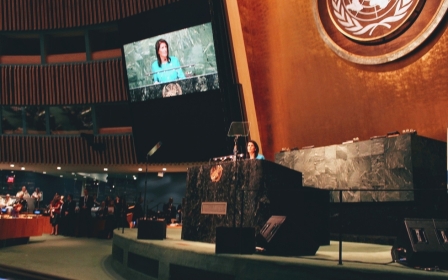Palestinians say Jerusalem 'not for sale' after Trump aid threat
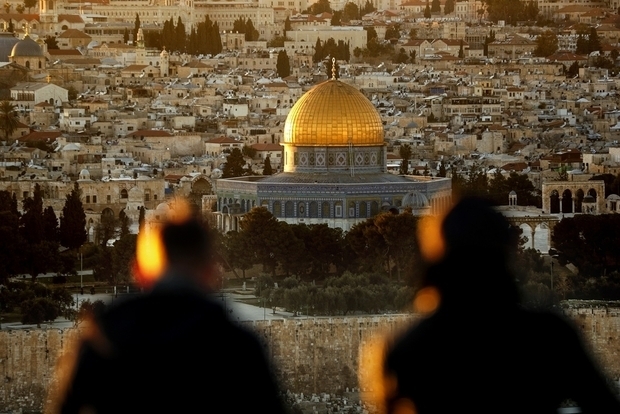
Palestinian President Mahmoud Abbas's office said on Wednesday that Jerusalem is "not for sale" after US President Donald Trump threatened to cut annual aid of more than $300m to force them to the negotiating table.
"Jerusalem is the eternal capital of the state of Palestine and it is not for sale for gold or billions," Abbas spokesman Nabil Abu Rudeina told AFP, referring to Trump's recognition of Jerusalem as Israel's capital.
UNRWA spokesperson Chris Gunness said on Wednesday that his organisation "has not been informed by the United States administration of any changes in US funding to the agency".
The 6 December declaration has sparked protests over recent weeks. Fourteen Palestinians have been killed including a 17-year-old in a village north of Ramallah on Wednesday.
Translation: The martyr Musab al-Tamimi, minutes before he was shot by the occupation forces in Deir Nizam village.
Musab Firas al-Tamimi was shot dead during clashes with the Israeli army in Deir Nizam, the Palestinian health ministry said. Ma'an News reported that three other Palestinian youths were injured with rubber-coated steel bullets during the clashes.
An Israeli army spokeswoman said soldiers spotted someone with a gun among those rioting and is investigating the incident.
Quds News Network published pictures of al-Tamimi sitting on a rock in an open field a few metres from the Israeli soldiers, only minutes before he was shot.
On Tuesday night, Trump tweeted that the US has taken Jerusalem "off the table" and said Palestinians were "no longer willing to talk peace":
Earlier on Tuesday, US ambassador to the UN Nikki Haley said that the US might halt funding the United Nations Relief and Works Agency (UNRWA) – the UN body tasked with helping Palestinian refugees – until the Palestinians agree to engage in peace talks with Israel again.
"[Trump] doesn't want to give any additional funding until the Palestinians agree to come back to the negotiation table, and what we saw with the resolution was not helpful to the situation," Haley said at the United Nations.
"We're trying to move for a peace process, but if that doesn't happen, the president is not going to continue to fund that situation," she added.
On Monday, the Israeli Knesset passed a bill which will make it more difficult for the Israeli government to hand over parts of Jerusalem to Palestinians under any future peace deal.
The bill also paves the way for Palestinian neighbourhoods in East Jerusalem to be hived off into a separate local council, reducing the city’s Palestinian population by a third.
Abbas condemned the bill, calling is "a brutal war on the Palestinian people and their land and holy sites".
Policy reversal
Trump abruptly reversed decades of US policy in December when he recognised Jerusalem as Israel's capital, generating outrage from Palestinians and the Arab world and concern among Washington's Western allies.
He also plans to move the US embassy to Jerusalem from Tel Aviv.
In late December, Trump threatened to cut off financial aid to countries that voted in favour of the UN resolution calling for the United States to withdraw its decision to recognise Jerusalem as Israel's capital.
"They take hundreds of millions of dollars and even billions of dollars, and then they vote against us. Well, we're watching those votes. Let them vote against us. We'll save a lot. We don't care," Trump told reporters at the White House.
Haley, in a letter to dozens of UN states last month, warned that Trump had asked her to "report back on those countries who voted against us".
US Vice President Mike Pence had been set to visit Israel during the week of 17 December, but according to the White House rescheduled his trip to focus on the tax bill then up for a vote in Congress.
While the trip was rescheduled to the week of 14 January, NBC News reported on Tuesday that his visit was not on the Israeli foreign ministry schedule.
Pence spokeswoman Alyssa Farah told AFP the vice president will still visit this month.
"As we've said all along, the vice president is going to the Middle East in January," she said. "We're finalising details and will announce specifics of the full trip in the coming days."
Middle East Eye propose une couverture et une analyse indépendantes et incomparables du Moyen-Orient, de l’Afrique du Nord et d’autres régions du monde. Pour en savoir plus sur la reprise de ce contenu et les frais qui s’appliquent, veuillez remplir ce formulaire [en anglais]. Pour en savoir plus sur MEE, cliquez ici [en anglais].


